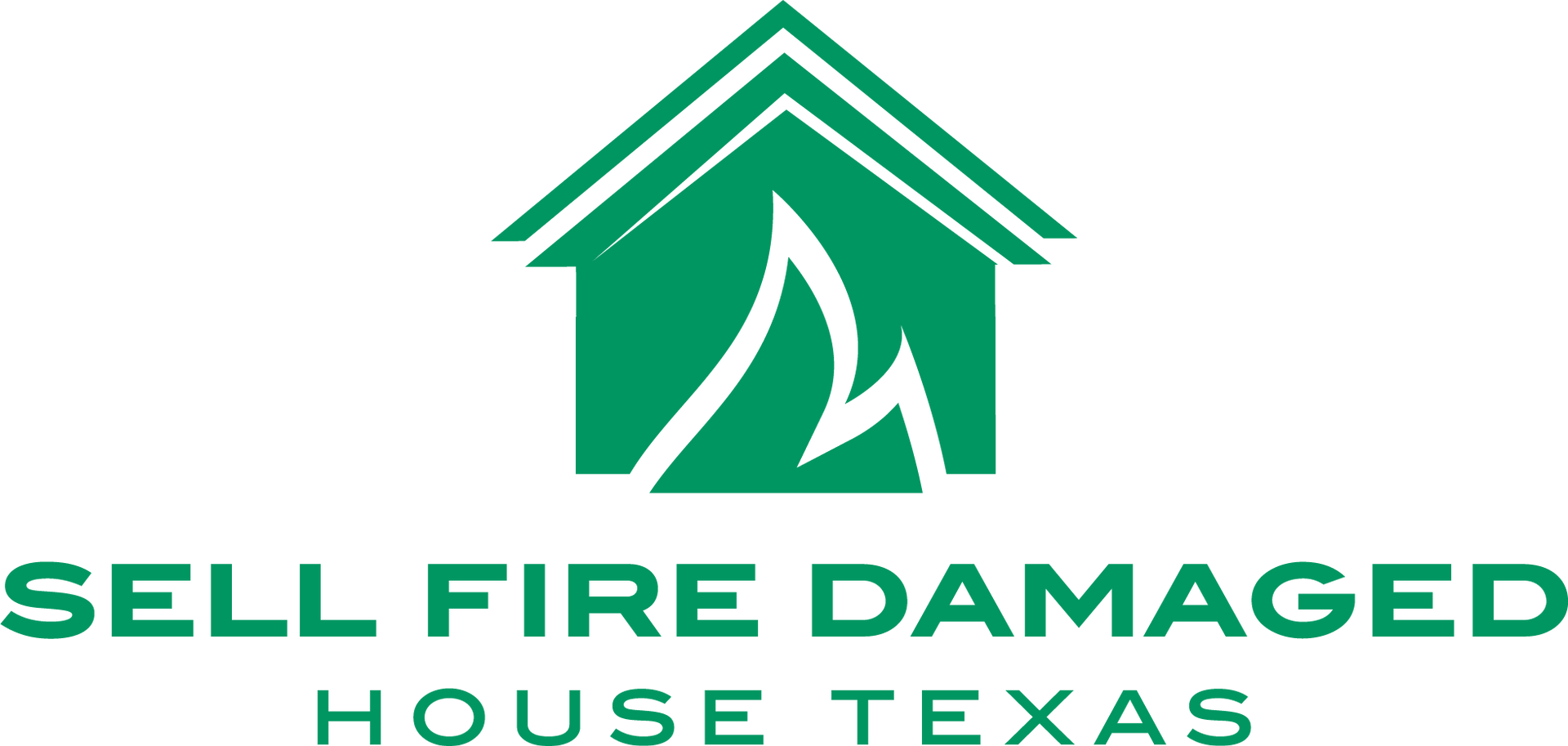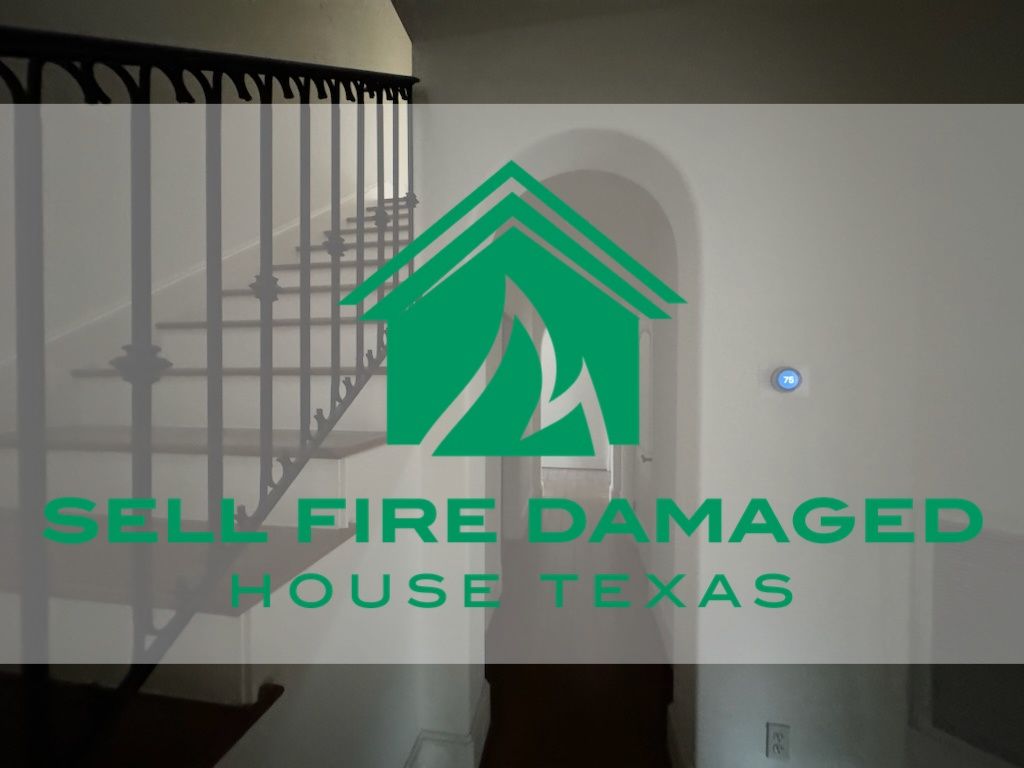Suing Your Neighbor For Fire Damage In Texas: What To Know
Published on February 05th, 2025
Mia Bennett
AUTHOR
Free Offer Form
Recovering your property after it experiences house fire damage is difficult and expensive. However, what happens if the fire damage comes from your neighbor's house?
In many communities, neighboring properties can burn when their neighbors' fire spreads. You may wonder, "Can you sue neighbor for fire damage?"
Yes, it's possible to sue your neighbor for such a situation. However, the challenge lies in proving that your neighbor's negligence caused the fire or they purposefully started it.
To sue your neighbor, you must gather evidence, understand your homeowners' insurance policies, and navigate legal action.
This in-depth guide discusses the factors to consider, facts about your insurance policy, and the implications of house fires.
ASSESSING LIABILITY IN FIRE DAMAGE SCENARIOS In Texas
House fires start for many reasons, from faulty electrical wiring to arson. If you want to sue your neighbor for fire damage, understanding liability is the first step.
Liability refers to someone being held responsible for their actions affecting others. You must prove your neighbor's faults through evidence to seek compensation.
In some states, proving liability is limited to the house fire damage to your property. Other states include additional issues concerning your personal belongings, like smoke or water damage.
A neighbor's liability can come in various forms:
- A neighbor's negligence over the handling or storage of flammable materials.
- Electrical malfunctions within their home or appliances.
- Unauthorized burning of materials.
Contact your insurance company before you file a lawsuit against your neighbor for the damages caused to your property.
Let them know that such a situation occurred and that you need help to financially recover.
Your insurance company will guide you through your homeowners' insurance policies and the next steps for fire coverage.
Fundamentals of Fire Damage Liability
Multiple factors can help your insurance company and investigators learn who is responsible.
The following are some common factors:
- Property Ownership: Property owners are responsible for following all fire regulations and safety measures. They may be liable if a neighbor's fire spreads due to their negligence.
- Occupant Responsibility: Occupants of a home or apartment building are required to do their part in fire safety. If one neighbor fails to stop a fire which results in damaging another neighbor's property, they may be sued for the damage caused.
- Manufacturer Liability: If the fire from your neighbor's house came from faulty electrical wiring, you may sue the manufacturer with a product liability claim.
Fully understanding the origin of the fire is crucial in making your case. Note that if, for example, a fire started due to a neighbor's negligence, both they and the neighbor's insurance company are responsible for the damage caused.
If you believe arson was committed, you must gather conclusive evidence and file a lawsuit.
Determining Liability in Fire-related Occurrences
To determine a neighbor's liability due to fire damage, follow these steps:
- Work with your insurance provider and authorities to know what and who caused the fire. This process includes evidence collection, talking to witnesses, and property documentation.
- With the evidence, investigators will determine all possible causes and motives, if any.
- If a neighbor or property owner is proven to be liable for the fires, seek legal advice to begin a lawsuit.
Additionally, if you incurred medical expenses due to the damage caused by fire, you may include it in the documentation process.
Your homeowners' insurance company is responsible for covering these medical expenses, alongside your neighbor's insurance company, if they're found responsible.
The amount of compensation will vary depending on the severity of your case.
Besides medical expenses, they must assess the fire damage caused and your coverage limits.
Note that liability is measured through negligence, liability, and misconduct. In court, your neighbor will be judged against these standards and how they failed to uphold fire safety.
If you're a renter and the property owner failed to protect you and inadvertently caused the fire, the fire aftermath: landlord's duty is to cover expenses and damages.
EXPLORING NEGLIGENCE IN FIRE DAMAGE CASES In Texas
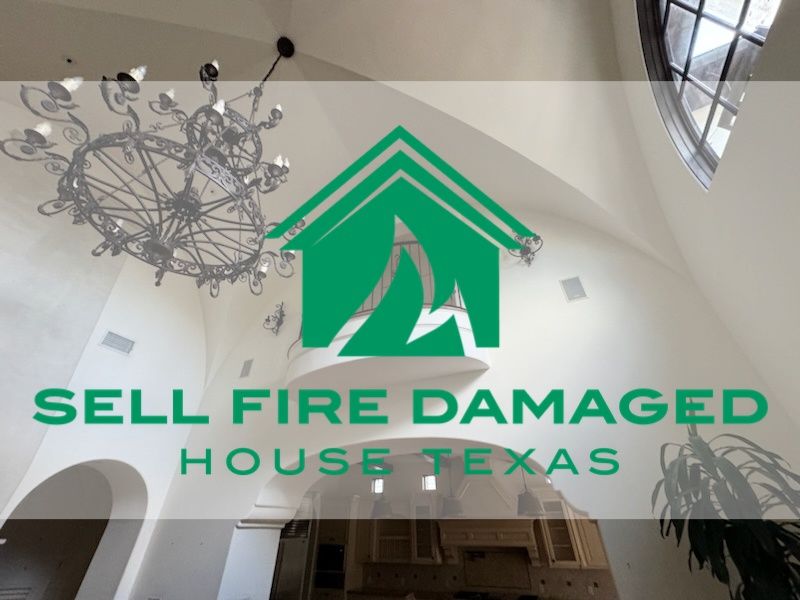
It may be easy to claim that your neighbor's negligence caused the fire. But how do you prove it?
Negligence is one person's failure to uphold care towards another. To prove negligence, you must show that your neighbor owed you that level of care and that their actions caused this unfortunate event.
The following situations may constitute negligence:
- Leaving flammable materials next to heat sources.
- Smoking in prohibited locations.
- Incorrectly handling flames.
- Failure to inspect electrical wiring systems.
If you can prove that their intentional or unintentional negligence caused the fire damage to your property, you can seek compensation for your losses.
Importance of Proving Negligence
To properly sue someone, you'll need to prove that they're responsible.
In this case, you need substantial evidence that your neighbor's negligence directly affected neighboring properties and that they failed to uphold their duty of care.
Claiming property damage and recovering expenses will be difficult without proof of negligence.
Evidence Collection to Establish Negligence
As is the case for any lawsuit, strong evidence is the first step toward a successful claim against your neighbor.
After the fire dies down, visit the property and take photos and documentation of the fire damage. Note how much it has affected your home, the neighbor's property, and other neighboring properties if applicable.
Talk to investigators and law enforcement to know the exact origin of the fire. Ensure you preserve physical evidence of the damage caused, as it can strengthen your case.
Research if the neighbor's home or the apartment building has specific fire safety codes. Then, match those codes with the fire's origin to see how your neighbor failed to follow it.
To further determine the level of negligence, speak with witnesses and other community members to learn the extent of the damages caused by the suspected neighbor.
Defining Neighbor's Duty of Care
Duty of care refers to the level of responsibility a person owes to their neighbor, ensuring their safety at all times. Practicing duty of care includes taking preventive measures against fire damage.
Note that "neighbors" are not limited to those living near your property; they also refer to anyone directly affected by your actions.
When a neighbor's fire causes damage to your property, that's a clear breach of duty. However, the challenge lies in proving how they breached it and whether the damage to your property was intentional.
NOTE: Establish your neighbor owed you a duty of care first before moving toward a breach of duty.
Demonstrating Breach of Duty by Neighbor
To properly determine the breach of duty, learn the cause of the flame. Evidence can help link the fire's origin with your neighbor's negligence.
For example, say the fire started due to faulty wiring. With enough evidence, you could prove that your neighbor failed to maintain their electrical system, therefore proving a breach of duty.
Alternatively, if your neighbor's negligence in handling flammable materials caused the fire, you can claim damages against them.
Note that in such situations, the court will only accept strong proof through multiple forms of evidence.
Cooperating with law enforcement and law experts is essential in understanding the damage their negligence caused.
LEGAL PROCEDURES FOR SUING A NEIGHBOR OVER FIRE DAMAGE In Texas
After gathering enough evidence to prove your neighbor's failure to uphold their duty of care, you can consider suing them over fire damage.
The legal process involves damage assessment, consultation, mediation, and trial attendance. The more severe the damage to your property is, the higher the chances are for success.
However, even with much fire damage, you may still lose the lawsuit if the evidence weakens. Remember not to hastily accuse your neighbor and review how your insurance can cover the legal cost.
Steps to Initiate a Lawsuit
Here are the general steps to initiate a lawsuit against your neighbor:
- Damage Assessment: Note the full extent of the damage caused to your property. Take photographs, videos, and witness statements. Check official fire reports on the case to determine the exact cause of the fire.
- Legal Consultation: Seek advice from a lawyer with experience in property disputes. They will analyze the strength of your evidence, the extent of the house fire damage, and your insurance policy coverage.
- Pre-Litigation: There may be minor fire damage from a neighbor's home. As lawsuits are costly, your lawyer may encourage you and your neighbor to resolve the dispute out of court. Your lawyer may work with your neighbor's lawyer for a settlement.
- Creating a Demand Letter: If negotiation fails, your lawyer sends a demand letter outlining the property damage, proof of negligence, and a demand for compensation.
- Filing a Complaint: The lawyer files an official complaint to your local court detailing the case and the legal basis for liability. After filing, the court sends a summons to your neighbor, to which they must respond.
- Begin the Discovery Process: Both you and your neighbor must start a discovery process where more evidence and information are gathered. In such situations, finding more documentation of the damages caused and witness testimonies may be helpful.
- Attend the Trial: During the trial, each side's legal representation shows evidence proving or defending the basis of liability.
The legal process may take time, depending on the case's severity. It's essential to fully understand the damages caused and determine if it is necessary to file a case.
Lawyer's Contribution in Fire Damage Cases
Lawyers are crucial in understanding all the laws and regulations your neighbor may have broken. They give detailed advice on your options and aim to protect you in court.
They also check your homeowners' insurance policy and guide you through your options.
Lawyers can help to strengthen your claim by checking the strength of your evidence and supporting you through the pre-litigation discussions.
Finally, lawyers ensure you follow all legal requirements while filing a case and receive the desired outcome.
Quantifying Damages and Compensation
House fire damage can be very costly, especially when your personal belongings are affected. However, quantifying damages and compensation depends on the severity of the damage.
While calculating the damages and the compensation you can receive, keep these steps in mind:
- Use official fire reports to calculate the cost of repairing or replacing property damage. This damage should include structures, personal belongings, and other items affected by fire or smoke damage.
- If your house or other neighboring properties are left uninhabitable after the fire, calculate all additional expenses for temporary housing during the repair process. This includes the cost of hotel rooms or shelters.
- If you or any family members suffer injuries or death due to a fire from a neighbor's house, assess the amount of medical or funeral expenses, rehabilitation costs, and emotional distress.
- In cases involving arson or intentional house fires, work with a lawyer to analyze the amount of punitive damages or the damages considered in a legal process to punish a person for negligence.
- Consult your insurance company to review your current insurance policy, checking for any fire insurance that may cover the damage caused by this unfortunate event.
The court may grant you compensation depending on the amount of property damage. This can cover the essential costs needed to rebuild your home.
Though a neighbor's house fire damaging your life is distressing, keep a clear mind and don't immediately sue them. Gather evidence and consider all of your options.
ROLE OF INSURANCE IN FIRE DAMAGE SCENARIOS in Texas
When a neighbor's fire spreads and affects your home, there may be other ways to gain compensation for the damages.
One way to do this is through seeking compensation from your neighbor's insurance company.
As important as understanding your homeowner insurance policy is, knowing how your neighbor's insurance works helps determine if their coverage extends to damages in neighboring properties.
Deciphering Neighbor's Homeowner Insurance Policy
Get a copy of your neighbor's homeowner insurance policy. You can request it from their insurance company or your neighbor.
This insurance policy should outline their coverage's scope, limitations, and deductibles. Once you have this document, follow these guidelines:
- Check if they have fire insurance to cover damage to structures and personal items.
- Analyze if the coverage limits are enough to cover damage costs on your and the neighbor's property.
- Note any exclusions towards fire damage coverage. Common exclusions include arson and acts of war.
- Check if their insurance policy has additional coverage options for smoke damage, temporary living expenses, or debris removal.
- Research their insurance carrier further and understand all conditions or requirements needed for the coverage to apply.
- Work with your insurance provider and theirs to settle on how much compensation you can receive and how much damage their insurance can cover.
What if your neighbor has renter's insurance? Normally, renter's insurance has fire damage coverage, and the abovementioned process remains similar.
Whether they have renter's insurance or homeowner's insurance, having extensive knowledge of their insurance strengthens your case when you file a claim.
Claiming Compensation from Neighbor's Insurance Company
After you have enough evidence, you can file an insurance claim with your neighbor's insurance company.
Contact their insurance carrier and give them all the documentation and evidence you've gathered. While filing insurance claims, ensure you state exactly how your neighbor's negligence caused the house fire.
If you prove a direct link between their actions and the damages caused to your property, then the likelihood of proper compensation rises.
Insurance claims involve legal processes. Consult a legal professional while filing this claim.
However, your neighbor's insurance company may deny your insurance claims. If this occurs, the next step requires additional legal action.
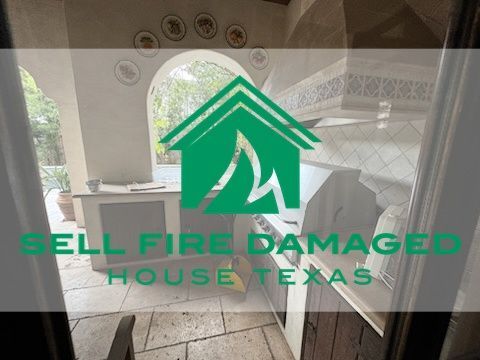
ALTERNATIVES TO COURT PROCEEDINGS IN FIRE DAMAGE DISPUTES In Texas
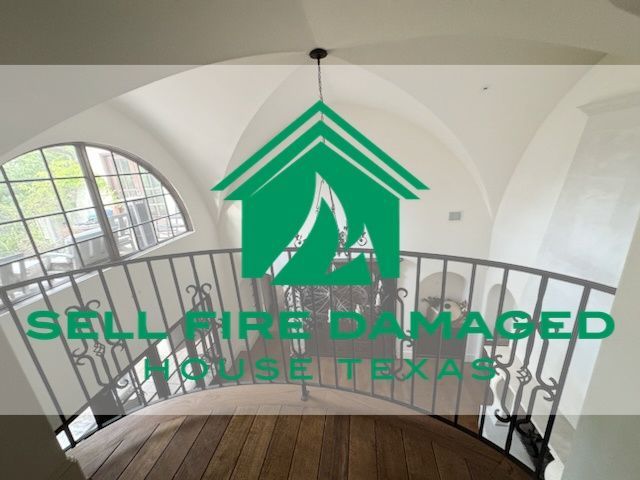
Note that law regulations are often complicated, especially when you try to sue a person for negligence.
Fortunately, filing a claim against your neighbor or their insurance company is not the only option. Alternative options include negotiation, mediation, and arbitration.
Exploring Alternative Dispute Resolution and Mediation
Before we delve into alternative dispute options, let's first define what negotiation, mediation, and arbitration mean:
- Negotiation: Any direct or indirect communication between two parties aiming to form a joint action or conclusion.
- Mediation: A neutral third party acts as a guide between two individuals, moderating their discussions and finding ways for each to recover losses.
- Arbitration: A procedure in which a dispute is submitted to one or more arbitrators who make the final decision.
In cases where negligence caused fire damage to your house, mediation is the recommended option.
Mediation aims to find a common ground between you and the neighbor, analyze the damage caused, and create a fair resolution.
Collaborating with a Mediator for Settlement Negotiation
Mediation is a cost-effective way of settling disputes, allowing you to understand your neighbor's side of the story without the pressure of the law.
While mediators still use legal knowledge to analyze damages, they focus on creating a healthy, collaborative discussion.
The following are the common steps of a mediation process:
- The mediator meets with you and your neighbor separately to hear each person's concerns.
- A joint session begins, where the mediator allows both sides to present their case.
- The mediator identifies common goals and interests and creates settlement details that both parties can agree on.
Before filing any case, look into mediation and maintain healthy, cooperative communication with your neighbor throughout the mediation process.
FIRE INCIDENTS: PREVENTION AND COOPERATION in Texas
A neighbor's house fire damaging your property is traumatic, regardless of the cause. While a house fire is extremely common, proper fire prevention methods can greatly reduce these risks by 50%.
By understanding basic fire safety, not leaving heat sources unattended, and practicing evacuation drills, you could protect your home and your neighbor's house from a sudden fire.
Implementing Safety Measures to Avert Fire Incidents
Basic fire safety doesn't require any technical training. Rather, you just need to teach everyone how to stop fires from starting in the first place.
The following are simple yet lifesaving safety measures for avoiding house fires:
- If you're cooking, never leave the flame unattended.
- Keep heating devices away from flammable items.
- Never overload electrical outlets, and check that all voltages are correct.
- Avoid smoking in bed or inside the home.
- Don't leave children unsupervised in kitchens or too close to other heat sources.
- Practice regular maintenance and cleaning of all appliances.
Fire prevention equipment, such as smoke detectors, can alert homeowners and stop a fire from spreading.
The best locations for smoke detectors are in the middle of a ceiling, inside every bedroom, and on every level of a home.
Neighborhood Collaboration for Fire Safety
Collaborating with your neighbors means more than visiting a neighbor's house for parties or helping to organize a neighborhood event. It can also mean helping them after a serious situation like a fire.
Instead of letting your neighbor deal with a fire on their own, there are many ways to prevent such a situation from starting at all.
These are just a few of the many ways you can encourage neighborhood collaboration:
- Create educational events and workshops on fire safety awareness throughout the neighborhood.
- Encourage fellow residents to report suspicious behavior that might lead to a fire to authorities.
- Develop emergency evacuation plans that fit your home's and other residents' locations. Identify possible evacuation routes, communication methods, and designated coordinators.
- Encourage other residents to install smoke detectors or other fire prevention equipment in their homes.
- Teach evacuation strategies and hold emergency drills so everyone knows how to handle a fire.
As a neighbor's duty of care is important in proving a case,
strengthening this duty of care with educational resources helps encourage everyone to take care of their property and each other.
FINANCIAL IMPLICATIONS OF FIRE DAMAGE LAWSUITS in texas
If mediation or other alternative dispute methods don't work, the next step is filing a lawsuit. However, expect high costs when you try to sue someone else
From lawyer fees to insurance premiums, there are many factors to consider before you pursue a case. Below are some of the financial facts you'll need before stepping into court.
Costs Associated with Fire Damage Lawsuits
The first expense that comes with any fire damage case is lawyer fees. Usually, lawyers charge an hourly fee, though some have flat or contingency fees.
Lawyer fees vary depending on multiple factors:
- The severity of the damage to your house.
- Any amount your insurance can cover for legal issues.
- Length of time the case takes before resolution.
- The amount of documentation and filing needed for the trial.
In some cases, lawyers require additional testimonies from experts and other authorities to specify the damage caused. These are additional costs that you'll have to prepare for.
If you're the defendant and the court finds you liable for the house fire, you must pay compensatory damages to cover property repairs, injuries, temporary housing, and other losses.
While your homeowners' insurance company may be able to help cover some of these costs, there may be limitations to what it can cover.
Besides lawyer fees, the person who filed for the lawsuit must pay filing fees to the court. Additionally, they must pay for Service of Process fees. The Service of Process allows a court summons to be formally delivered to the defendant, typically through mail.
Lawsuits have several additional costs, from document production to transcribing and transport. Mediation isn't free, and while it's cheaper than a court trial, you must be aware that your insurance may not cover all additional fees.
Recovering Legal Expenses
There are ways to recover legal costs depending on the case's outcome.
These are the common situations where gaining your money back is possible:
- Some lawyer fees have clauses within the agreement stating that the party who wins the case may recover attorney's fees and litigation costs from the losing party.
- If the fire directly breaks certain laws, your local government may be obligated to let you recover the lawyer and court fees. However, this depends on the severity of the case and the laws the other party broke.
- If both parties agree on a settlement and it outlines provisions for legal fees, the party who initially filed the claim can negotiate for the reimbursement of the fees.
- During a trial, a judge may allow the party prosecuting the other to recover the lawyer fees and costs if there is severe misconduct from the defendant.
- If the defendant gives a counterclaim against the prosecuting party, but this counterclaim is proven to be false, then the prosecuting party can recover fees associated with defending against the counterclaim.
- If multiple parties are responsible for the fire, the party who filed the claim may seek compensation from each individual for the damage caused.
- Lawyer fees and court costs may be written off as a business expense or a miscellaneous deduction on their taxes. However, these are still subject to their state's tax laws.
While these are all possible, they may only apply in certain cases. As all fire lawsuits vary, understand that there's a possibility that you won't be able to recover these costs.
Different state courts may limit how much you can gain back. Researching your state's laws is essential before you submit a claim.
Impact of Fire Damage on Property Value
The house fire impact on property values is generally negative.
When a fire occurs, the damage caused will lower the property value. Real estate investors may view your property as high risk.
Due to the high costs of repairs and rehabilitation, you may consider a fire damage house sale instead to recoup lost finances.
You might wonder, "Do you have to disclose fire damage when selling a house?" Yes, property owners are legally obligated to disclose the property's history and the damage caused by a fire.
Even if major restoration removed any sign of a previous fire, transparency over such an event is still required while selling the home.
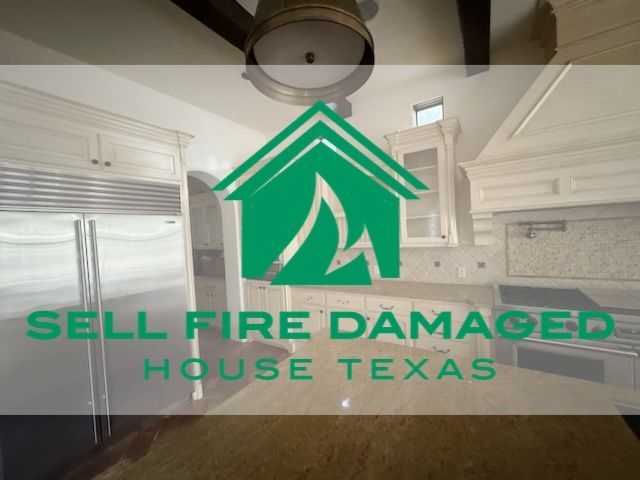
NAVIGATING LEGAL REPRESENTATION IN FIRE DAMAGE CASES in texas
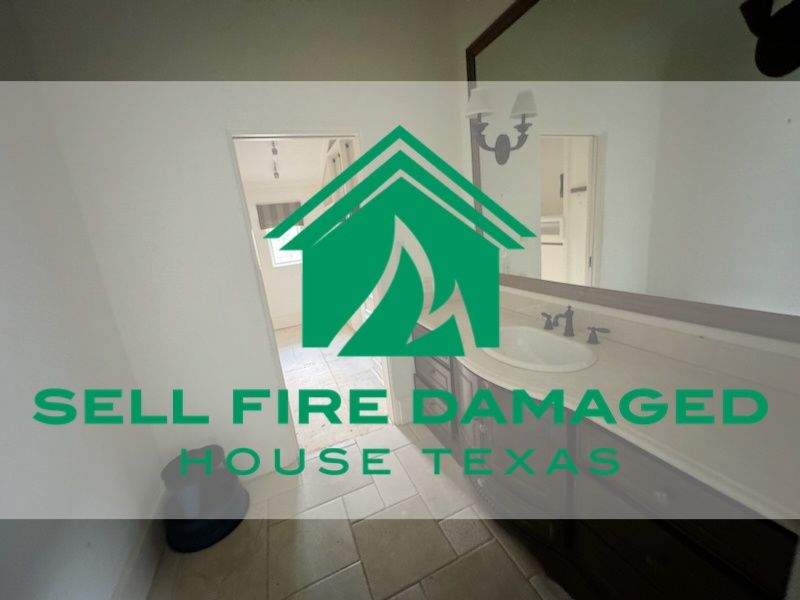
Before submitting a fire damage case claim, you must consider who'll represent you in court.
Picking the right lawyer to properly guide you through the process is crucial to a successful claim. They must be knowledgeable about property dispute cases and have experience with similar cases.
Most importantly, they must have your best interests in mind.
Choosing the Right Lawyer for Fire Damage Cases
There are four factors to consider while choosing the right lawyer for a fire damage claim:
- Location: A good property lawyer lives and has been practicing law within your city or state for at least eight years. They must be knowledgeable about your city's laws and your insurance company.
- Experience: The lawyer must have ample experience with similar cases. Look into previous client reviews and testimonials to see how other people's cases fared with their help.
- Dedication: The right lawyer is someone who believes in their client. Whether you're the defendant or the one pursuing a claim, they will push through the case for your sake.
- Personal Connection: Though this is optional, choosing a lawyer who understands the damage caused by a fire helps give you a stronger sense of trust.
Before looking through your options for legal representation, consult your insurance company and check if there's any part of your coverage for legal representation.
A trial is only for situations where you, your neighbor, and the insurance companies involved cannot agree on settlement terms for the damage caused.
Though consulting a lawyer after house fire strengthens your case, it's costly. Consider negotiating with your neighbor and their insurer before entering a lawsuit.
Role of Legal Counsel in Negotiating Settlements
Legal counsel plays a vital part in settlement negotiations. The following are their main responsibilities:
- Assessing the strengths and weaknesses of a client's claim and the neighbor's testimony.
- Consulting with their client on all the evidence and facts of the case.
- Creating a demand letter to the neighbor's insurance carrier for damages and settlement demands.
- Discussing legal arguments supported by evidence and local laws.
- Evaluating proposed settlement terms and weighing them against their client's interests.
- Documenting all legal files and processes.
- Representing their client in court.
- Post-trial coordination with their client to assist them after the case.
Maintaining strong and collaborative communication with your lawyer helps guide you throughout the process and choose the right settlement options.
Frequently AskedQuestions
Learn more regarding the question, "Can you sue neighbor for fire damage?" here.
Can I Sue My Neighbor if Their Fire Damaged My Property?
Yes, you can sue your neighbor if their fire damaged your property. However, you must gather substantial evidence proving it was intentional or they failed to uphold a duty of care in damaging your home.
What Evidence Do I Need to Prove My Neighbor's Negligence in a Fire Incident?
You will need the following evidence to prove negligence:
- Documentation proving the cause of the fire
- Photographs, videos, or testimonials of their negligent behavior
- Evidence showing their disregard for fire safety
- Documentation of property and medical damages from the fire
- Expert testimonials on the severity of the fire
Note that stronger evidence may lead to a more successful claim.
How Can I Determine the Damages for a Fire Incident?
The following are used to specify fire damages:
- Repair costs
- Temporary housing costs
- Medical costs
- Personal property loss
- Psychological stress
- Funeral costs for fatalities
- Clean up costs
- Future damages and losses
Documenting the abovementioned damages is essential to calculate house fire restoration expenses properly.
Can I Seek Compensation From My Neighbor's Insurance Company for Fire Damage?
You can seek compensation from their insurer if you have substantial proof that their negligence caused the fire.
What Are the Alternatives to Litigation in Fire Damage Disputes?
Negotiation, mediation, and arbitration are alternatives to court litigation.
Mediation is recommended
during the settlement process.
Conclusion
When you experience a house fire, it may feel like a traumatic loss. However, with the help of legal representation and your insurer, recovering damages and moving on with your life is possible.
Remember to update your home insurance policy for fire damages and practice fire safety prevention methods regularly.
If you decide to start a case, choose your lawyer carefully and consider all options first. Encourage fellow residents to practice fire safety to maintain a safe environment.
